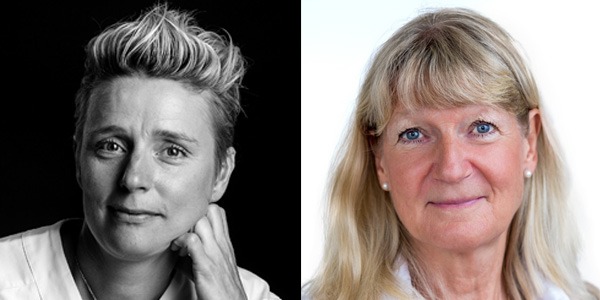
Physicians in internal medicine and geriatrics and even physicians working in cardiology departments lack basic knowledge of treatment with implantable cardioverter defibrillators (ICDs) and how to clinically manage these patients, according to a stratified questionnaire survey conducted in Sweden.
The cross-sectional comparative study, published by Annika Kinch Westerdahl and Viveka Frykman (Danderyds Hospital, Stockholm, Sweden) in Europace, found that more than two-thirds of the physicians rated their knowledge to be low, with test scores revealing sufficient knowledge in only 41% of those surveyed.
Treatment with ICDs is increasing, and it is projected that an ICD will be indicated for many more patients, mainly due to the high incidence of heart failure. Patients with an ICD who are admitted to hospital are treated in a variety of departments. Studies have shown that more than 80% die in hospitals or healthcare facilities, not at home, and that two-thirds are treated in wards other than cardiology. Doctors need to have basic ICD knowledge, or access to appropriate expertise, if they are to provide the best possible care from implantation to the end of life.
The aim of the study was to assess the levels of knowledge concerning ICD treatment among physicians active in cardiology, internal medicine, and geriatrics. It was conducted between 1 March and 31 September 2015, and the researchers used a stratified nationwide sampling of hospitals for the distribution of the questionnaire. Cluster sampling was performed, in which hospital size (university or non-university) and geographic spread were taken into account in each sample.
A total of 432 surveys were distributed, and 430 were completed and collected. Of the 18 sampled hospitals, 14 (78%) participated, five (36%) of which were university hospitals and nine (64%) non-university hospitals.
With a response rate of 99.5%, as many as 349 (83%) physicians had experience with ICD patients, with 218 (75%) physicians working in internal medicine or geriatrics reporting experience with ICD patients. The majority, 288 (68%), of all physicians, including 51 (37%) working in cardiology departments, estimated their level of knowledge to be low or very low. Only 19 (20%) qualified specialists in cardiology departments estimated their level of knowledge to be very good.
According to predefined criteria, 175 (41%) physicians’ scores reflected sufficient knowledge, with a significant difference between specialties. Sufficient knowledge was reached by 56 (30%) of the physicians in internal medicine and 20 (19%) in geriatrics, whereas in cardiology 99 (71%) reached sufficient knowledge.
On average, doctors in cardiology had a score of 6.79+1.75 out of nine possible correct answers, which was significantly higher than those working within internal medicine. The difference was even greater when compared with geriatrics. There was also a significant difference between internal medicine and geriatrics, with average scores favouring internal medicine. Physicians working at university hospitals earned higher scores than those at non-university hospitals. There were no significant differences in the level of knowledge between specialists with long experience (≥10 years since specialist exam) and those with less experience (<10 years), both in total and in all specialties.
Areas of insufficient knowledge highlighted by the survey included the management of cardiac arrests. Of all doctors surveyed, 172 (40%) said that they did not know how to manage and treat sudden cardiac arrest in a patient with an ICD, and 123 (29%) falsely stated that one cannot externally defibrillate a pulseless ICD patient. There were 19 (14%) physicians in cardiology who did not know how to manage and treat sudden cardiac arrest, and 22 (16%) who would not use external defibrillators on an ICD patient with sudden cardiac arrest. There was also limited knowledge about the ICD pacemaker function, particularly in regard to magnet application—65% of all doctors thought that the pacing function would be turned off if a magnet was placed over the device. And only 67 (15%) of all respondents, and 33 (24%) in cardiology, were aware that one ICD responds differently to magnet application in that it automatically activates shock therapy after eight hours, despite a magnet being applied.
The researchers said that the growing number of patients with ICDs meant that the knowledge gap needs to be filled as soon as possible. “The increasing number of ICD patients will make it impossible for device specialists to follow all patients at all times. This development is shifting some of the responsibility of ICD patient care (ie. end of life questions) to other specialities and primary care physicians. A basic knowledge about implantable devices is essential for healthcare professionals. The results from this study indicate a need for increased knowledge about ICD treatment, to increase information regarding specific ICD-related questions, and to improve communication between specialists.”
Regarding measures in terms of improving physicians’ knowledge of ICD treatment, the authors told Cardiac Rhythm News: “ICD device specialists, physicians and nurses, must take on the responsibility to educate physicians with other specialities in ICD knowledge. ICD treatment will be more common in the future and patients will be treated in internal medicine and in geriatrics to a wider extent than today; therefore, communications between specialists has to improve. Also, physicians working with end-of-life patients have to actively seek information and knowledge regarding ICD treatment and clinical aspects connected to this treatment. Healthcare professionals must make great effort to identify key medical issues including ICD therapy and make sure that patients with active treatment have the possibility of deactivation of shock treatment in situations when the treatment is no longer of benefit, possibly even harmful, and only prolonging life.”












